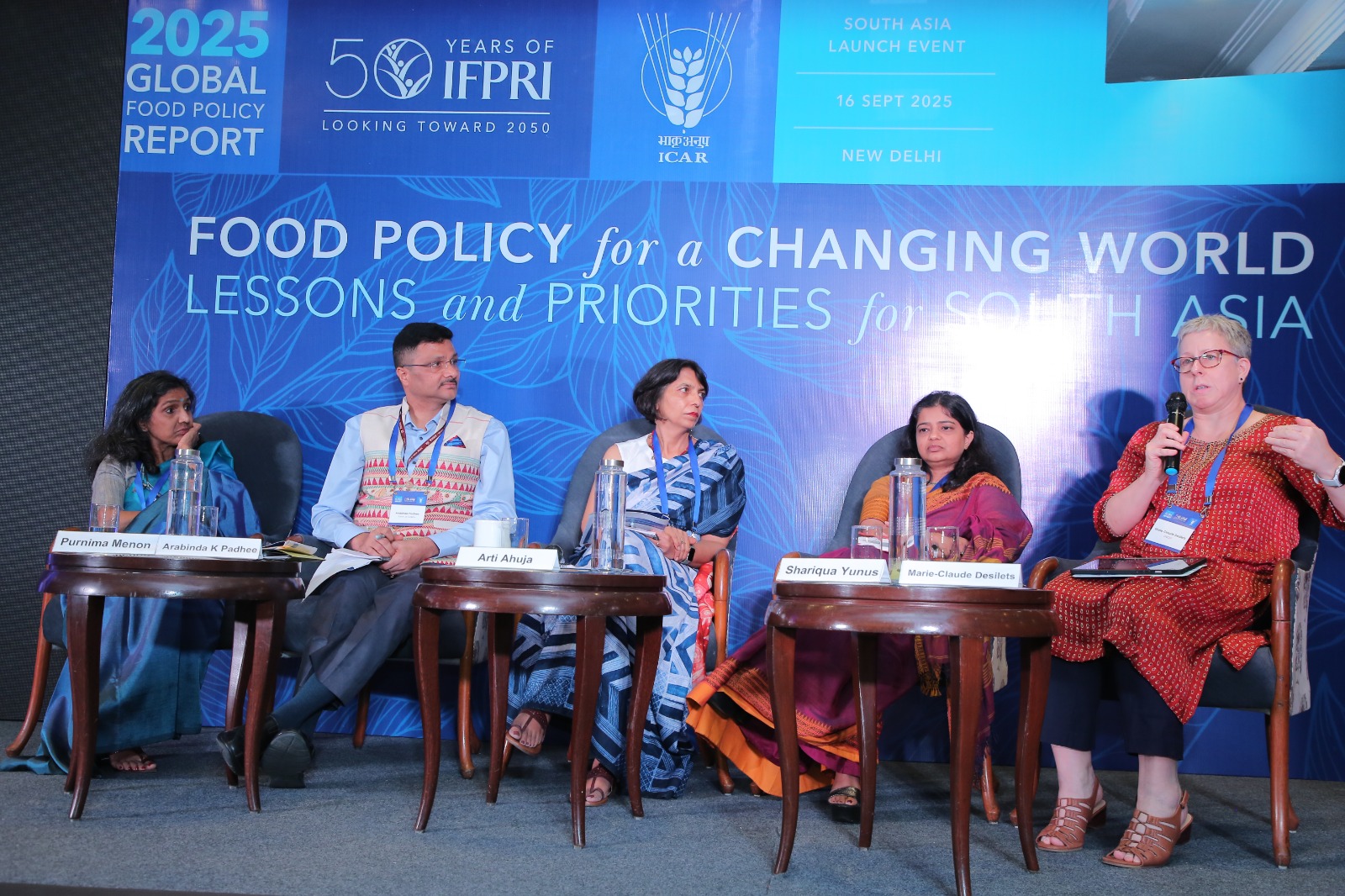New Delhi: A high-level regional policy dialogue, “Food Policy for a Changing World: Lessons and Priorities for South Asia,” was convened on September 16 in New Delhi by the International Food Policy Research Institute (IFPRI) and the Indian Council of Agricultural Research (ICAR). The event also served as the South Asia launch of IFPRI’s 2025 Global Food Policy Report (GFPR).
Prof. S. Mahendra Dev, Chairman of the Economic Advisory Council to the Prime Minister, urged that food systems prioritize delivering affordable, healthy, and diversified diets.
Dr. Vinod K. Paul, Member of NITI Aayog, stressed the need to address malnutrition through early interventions, beginning “before pregnancy.”
Smt. Anu Garg, Development Commissioner–cum–Additional Chief Secretary of the Government of Odisha, highlighted her state’s success in agriculture, transitioning from a region known for starvation deaths to the fifth-largest rice producer in India.
Dr. Arabinda Kumar Padhee, Principal Secretary for Agriculture in Odisha, noted the state’s unique approach of integrating climate and gender perspectives from the start with a climate resilience cell (CRC) and an upcoming gender-responsive cell (GRC). He also pointed to regional collaborations like “Seeds Without Borders” as a way to spread climate-resilient varieties.
Dr. Angela Lusigi of the United Nations Development Programme (UNDP) called for inclusive solutions that combine innovation with traditional knowledge.
Dr. Purnima Menon of IFPRI reinforced the institute’s role in connecting global policy evidence.
Dr. Shahidur Rashid, Director of IFPRI-South Asia, noted that this year’s GFPR not only marks IFPRI’s 50th anniversary but also looks ahead to future policy challenges.
The dialogue concluded with a focus on South Asia’s shared opportunity and responsibility to lead in food systems transformation, prioritizing resilience, equity, and nutrition.


